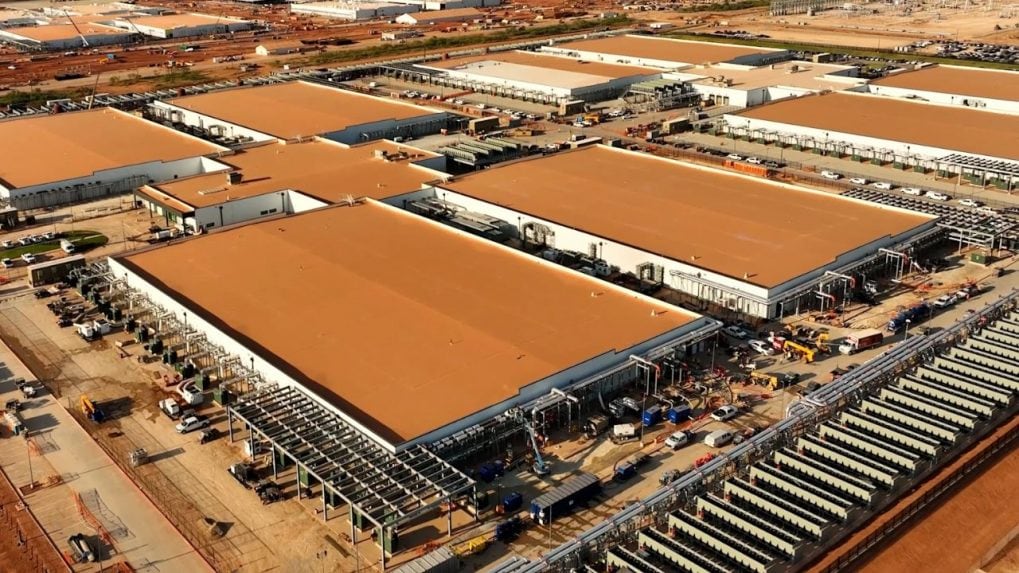Agency News
'Why buy a network that even Dentsu couldn’t fix?': Inside the gamble of Dentsu's international arm sale

OpenAI, Oracle, and SoftBank have annoucned five new U.S. AI data center sites under Stargate, OpenAI’s overarching AI infrastructure platform.
The combined capacity from these five new sites—along with OpenAI's flagship site in Abilene, Texas, and ongoing projects with CoreWeave- brings Stargate to nearly 7 gigawatts of planned capacity and over $400 billion in investment over the next three years.
"This puts us on a clear path to securing the full $500 billion, 10-gigawatt commitment we announced in January by the end of 2025, ahead of schedule," OpenAI said.
In July, OpenAI and Oracle entered an agreement to develop up to 4.5 gigawatts of additional Stargate capacity. This represents a partnership that exceeds $300 billion between the two companies over the next five years. The three new sites—located in Shackelford County, Texas; Doña Ana County, New Mexico; and a site in the Midwest, which OpenAI expects to announce soon; combined with an additional potential expansion of 600 megawatts near the flagship Stargate site in Abilene, Texas—can deliver over 5.5 gigawatts of capacity. Together, these sites are expected to create over 25,000 onsite jobs, and tens of thousands of additional jobs across the U.S.
"We remain in the process of evaluating additional sites," it added.
The other two Stargate sites being announced can scale to 1.5 gigawatts over the next 18 months. These sites will be developed through a partnership by SoftBank and OpenAI that can scale to multiple gigawatts of AI infrastructure.
The five new sites were chosen through a rigorous nationwide process launched in January. OpenAI, Oracle, and SoftBank reviewed over 300 proposals from more than 30 states.
The new Stargate sites being developed by Oracle will join the flagship Stargate campus in Abilene, Texas, which is already up and running on Oracle Cloud Infrastructure (OCI) and continues to progress rapidly.
“AI can only fulfill its promise if we build the compute to power it. That compute is the key to ensuring everyone can benefit from AI and to unlocking future breakthroughs. We’re already making historic progress toward that goal through Stargate and moving quickly not just to meet its initial commitment, but to lay the foundation for what comes next,” said Sam Altman, CEO of OpenAI.
“Oracle’s reliable, scalable, and secure AI infrastructure is helping OpenAI rapidly scale its business. To meet this enormous demand, we continue to expand OCI’s footprint at an unrivaled pace to deliver the most performant and cost-effective AI training and inferencing," said Clay Magouyrk, CEO of Oracle
“Stargate is harnessing SoftBank’s innovative data center design and energy expertise to deliver the scalable compute that powers AI’s future. Together with OpenAI, Arm, and our Stargate partners, we are paving the way for a new era where AI advances humanity," said Masayoshi Son, Chairman and CEO of SoftBank Group Corp.
OpenAI, Oracle, and SoftBank first announced the $500 billion Stargate commitment in January at the White House alongside President Trump, as part of a broader push to spur investment in American AI infrastructure.
According to LinkedIn’s research with over 1,700 B2B tech buyers, video storytelling has emerged as the most trusted, engaging, and effective format for B2B marketers. But what’s driving this shift towards video in B2B? (Image Source: Unsplash)
Read MoreIndia’s parliamentary panel warns fake news threatens democracy, markets and media credibility, urging stronger regulation, fact-checking, AI oversight and global cooperation.